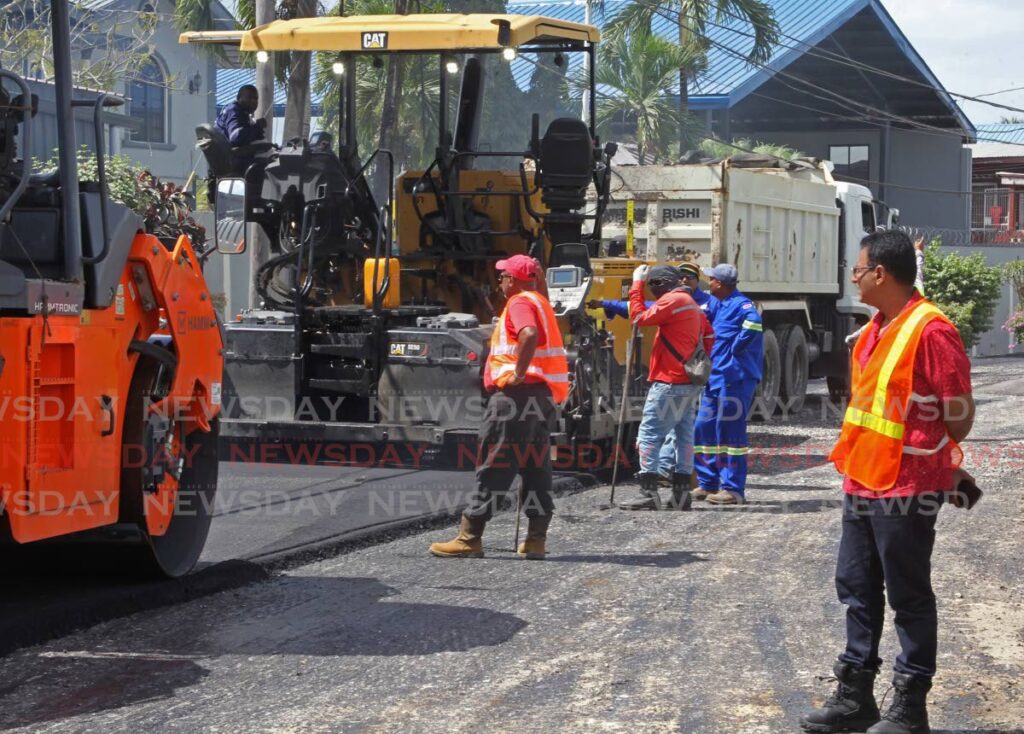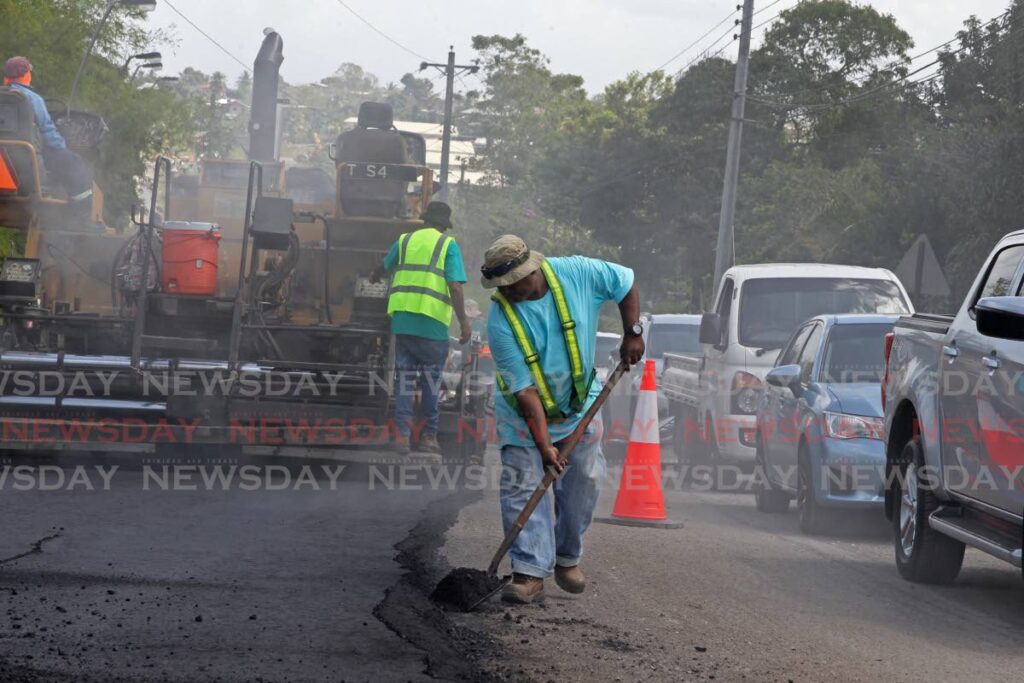Pothole ease as worst roads to be fixed

WORKS AND TRANSPORT Minister Rohan Sinanan said an "aggressive" road repair campaign will help reduce the costs of vehicle repairs as fresh layers of asphalt were being spread on some of the worst, most used, roads in TT.
Sinanan agreed on Saturday that many of the roads in the country were in a state of disrepair as government funds had been prioritised to combat the spread of covid19 virus over the last two years sparking protests in several communities.
“We need to up the game in terms of the maintenance and this is what we are doing now,” he said during a tour of several projects in South Trinidad.
Sinanan said some of the roads in that region were eroded by broken water lines and other by overweight trucks.
To make matters worse, he said WASA after they dig up the road to repair leaks do not repair the road quickly or up to standard, an issue he is trying to resolve.
“We are working with WASA, we are hoping that this year we can see some improvement in terms of rehabilitation after WASA fixes the leaks. In terms of the overweight trucks, we have been working in the last two years to reduce the amount of overweight trucks on the road by legislation.
"We have increased the fines and we are actually going to be doing a lot more enforcement with these trucks. Trucks that are certain weight are licensed for certain roads. What we find happening now is that a lot of trucks are going on routes that they were not licensed for and we are trying to ensure that does not happen. We will be taking a lot more stern action on trucks that come off the routes and we’ll be clamping down on the overweight trucks. We have increased the fine from $700 to $8,000 for overweight vehicles because they contribute significantly to the damage of the road network.”
Asked how the ministry determines which road to repair, Sinanan said they are chosen based on a survey done every three years by the ministry.
“Every three years the ministry does a conditional survey which tells us the extent of all the roads in Trinidad. This is really the first phase of this road infrastructure programme and we have targeted the roads that are most used and in this instance, the roads that are probably in the worst condition. So the programme will continue, but what we are targeting now is the roads that we see urgent remedial work is needed.”

He said the other phase of the remedial work will start once funding is available and the plan is to reach out to all the areas in Trinidad and repair all the roads under the purview of the ministry.
“We also have the Secondary Roads Company in which we will be dealing with some of the minor roads,” Sinanan said.
“We know it’s a little inconvenient but we are trying to do some of the work in the day and most of the work in the night, so we apologise for any inconvenience. But as we are all aware, we have to emphasise the importance of infrastructure back to the level that we would like to see,” Sinanan said.
Sinanan said the Suchit Trace project is one their largest ones as it extends from that junction to Debe Trace and onto the Solomon Hochoy highway.
Other areas where work was being done on Saturday were M1 Tasker Road, Malgretoute, Princes Town, the Naparima/Mayaro Road and Manahambre Road Junction. The M1 Tasker Road is a major access road to Princes Town. The Naparima/Mayaro Road and Manahambre Road Junction near St Clements was described as “horrible” by drivers, and also was selected for repair under of the ministry’s Programme for Upgrading Road Efficiency (Pure).
Sinanan assured that the engineers were on site to ensure the work is carried out properly and “to make sure that what we are paying for is what we get.”
“Also there’s a period called the defects liability period where the contractor has the give that guarantee during a certain period of time. A part of their money will be retained until that defect liability period has been completed and the road will be inspected until then. If there are any infringements on the road then the contractor will have to come back out and do the retrofitting of it,” he said.
Major road repairs have begun along the Blanchisseuse Road, off Arima and the Saddle Road, in Maraval.


Comments
"Pothole ease as worst roads to be fixed"